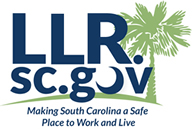Hello REALTORS®,
Political commentators often use the term “August Break” when talking about Washington, DC. NAR’s Chief Advocacy Officer, Shannan McGahn says there is no such thing. As I was reviewing NAR’s blizzard of reports to Government Affairs Directors, I got a new appreciation of that point of view. Below are several reports on what NAR has accomplished for Realtors during the “August Break.”
Trigger Leads Bill signed by President Trump
A bill that severely restricts “trigger leads” was signed by President Trump earlier this month. The Homeowners Privacy Protect Act of 2025 takes effect in 6 months.
NAR led a broad coalition of partners in a years-long effort to end the use of mortgage credit trigger leads, an abusive practice where after applying for a mortgage loan, credit reporting agencies sell a consumer’s data as leads to other competing lenders without the consumer’s knowledge or consent. Consumers are then inundated with dozens of calls, emails, and texts from mortgage brokers looking to take business from the original lender. Consumers are not aware that their personal information has been sold. They are left frustrated, often thinking that their agent or lender has sold their information, unaware that credit reporting agencies are selling their data.
FHA announces new appraisal reporting, elimination of certain requirements
FHA is transitioning appraisal reporting to a new Uniform Appraisal Dataset (UAD 3.6) next spring. Fannie Mae and Freddie Mac are already making the transition.
In addition, FHA is making several changes to its rules for single-family home lending:
- Recission of the Federal Flood Risk Management Standard for new construction that was implemented less than a year ago. The primary effect of the change is that new construction must be built above the 100-year flood elevation. The new rule, which is being abandoned, requires construction 2-feet above the 100-year flood elevation. NAR supported the 2-foot rule.
- Recission of outdated and costly FHA appraisal protocols including:
- Requiring appraisers to estimate the remaining economic life of a property.
- Removal of additional reporting requirements for Section 223(e) mortgages, which cover older properties in declining urban areas.
- Reduced photography requirements.
- Greater flexibility when conducting market analysis.
- Recission of mandatory pre-endorsement inspection requirements for properties located in areas declared a major disaster area by the President (I personally experience this after the “great flood” in the fall of 2015—it delayed the closing on my current home by three weeks).
- Recission of the Supplemental Consumer Information Form that collected data on:
- Borrower’s preferred language.
- Homeownership education and counselling received by the borrower.
NAR calls for reforms to expand the private flood insurance market
Almost every year, Realtors are asked to call their members of Congress to urge them to reauthorize the National Flood Insurance Program (NFIP). That’s because NFIP has a virtual monopoly on flood insurance.
NAR recently told the US Justice Department’s task force studying anticompetitiveness that flood insurance, and barriers to private flood insurance, is something they should consider.
Another government shutdown?
The current federal budget expires September 30, and it is a continuation of the last fully adopted budget in 2017-2018. And that budget wasn’t passed on time. The last time Congress passed a budget on time was 1997. Thus the annual threat of a government shutdown.
We don’t know yet whether Congress will pass a continuing resolution, which is what they have done dozens of time, or allow the government to partially shut down. But Congress hasn’t adopted one of the 12 budgets it’s required to pass each year.
One of the ways that Realtors are directly impacted by government shutdowns is that the NFIP is one of those nonessential programs that gets shutdown.
So Realtors, be ready for a call to action later this month to encourage your members of Congress not to let NFIP shut down.
NAR launches new Market Statistics Dashboard
The dashboard is a member-exclusive tool that provides NAR members with local housing data that enhances their ability to help their clients buy and sell homes. The reports enable NAR members to stay ahead of the market and better serve their clients.
The dashboard, updated monthly, provides NAR members with data on:
- Housing affordability
- Sales and listing trends
- Home pricing changes
- Economic indicators
- Homeownership and demographic insights
The dashboard also includes predictive analysis on how many households could qualify to buy a median-priced home if mortgage rates fall to 6%, for example. This enables members to better guide clients through the homebuying and selling process.
Using the mortgage rate example, in the Greenville-Anderson metro area 17,098 more households (10%) and 4,791 more renter households (17%) will be able to afford to buy a home if rates fall to 6%. NAR forecasts 1,710 more home sales in our area over the next 18 months if rates fall to 6%.
Access the NAR Market Statistics Dashboard by clicking here and select “Greenville-Anderson, SC” from the drop-down menu.
Learn More About the Anderson County Penny Sales Tax Referendum
Your Western Upstate Association of REALTORS® will host an information session for members and the public to learn about the Anderson County penny sales tax referendum. Anderson County staff will be on hand to answer your questions about the referendum and how the money will be used. Drop in during the hours below and get your questions answered before your vote on November 4.
Drop-In Information Session
- Tuesday, September 23
- 3 p.m. until 7 p.m.
- Anderson County Civic Center
- 3027 Martin Luther King Jr. Blvd., Anderson
Support RPAC
RPAC is an important element of your Realtors Association’s advocacy program. I encourage you to support RPAC, and we make it easy to do so—we include a voluntary RPAC contribution on your annual dues renewal. Simply pay it and you have supported RPAC. If you want to do more than that modest amount, that’s easy too.
Michael Dey, Director of Government Affairs



